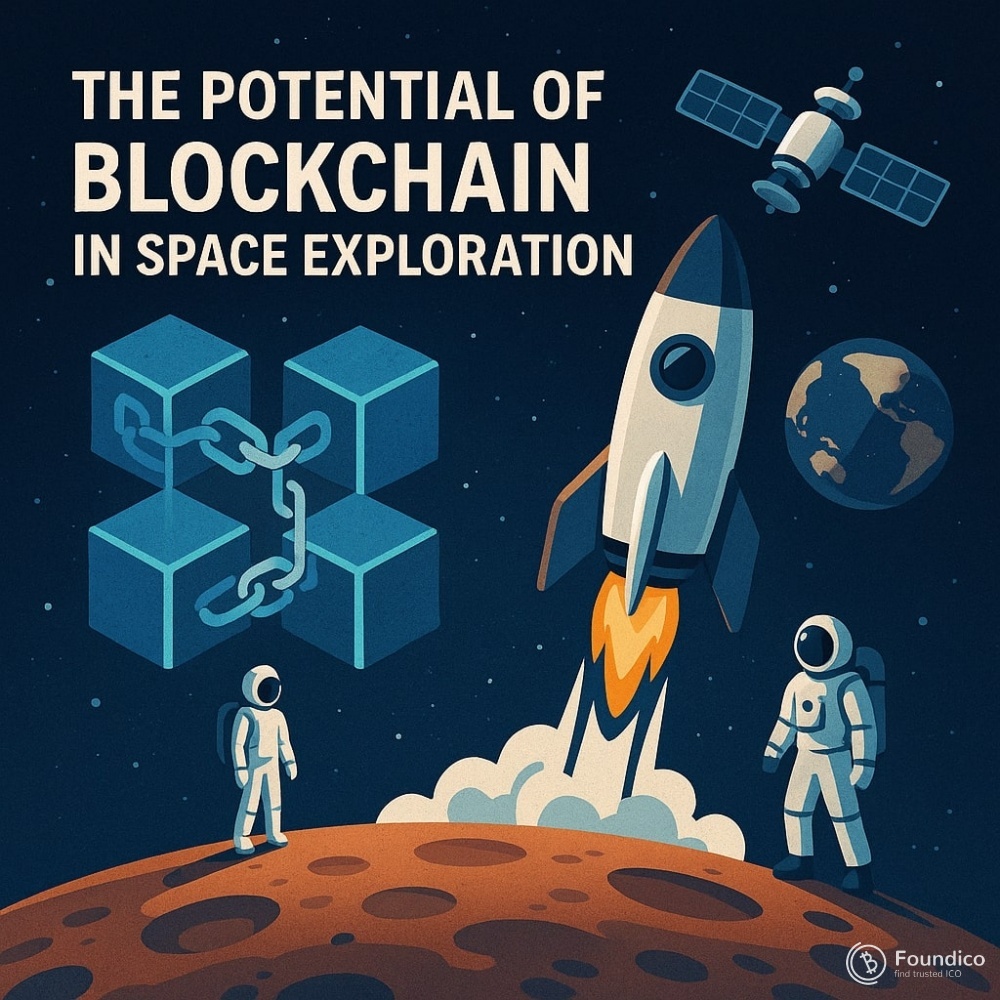Blockchain and the New Space Economy: A Framework for the Final Frontier

By Dr. Pooyan Ghamari, Swiss Economist and Visionary
Space is no longer a distant dream reserved for superpowers; it is becoming a global enterprise where private companies, international collaborations, and even visionary entrepreneurs play decisive roles. This shift signals the dawn of a new space economy, one that requires equally bold innovations in governance, trust, and resource management. Among the tools that could define this era, blockchain technology stands out as a catalyst for transparency, security, and cooperation.
A Decentralized Foundation for Space Collaboration
Unlike traditional systems of oversight, blockchain eliminates the need for a single central authority. Every transaction or agreement is verified by a distributed ledger, ensuring that trust is not reliant on intermediaries. In the unforgiving environment of space—where communication delays and jurisdictional disputes complicate operations—this decentralized trust mechanism is especially valuable.
Through blockchain, participants in space missions can share data, allocate resources, and enforce agreements with unparalleled clarity and accountability.
Securing Resources and Supply Chains
Aerospace supply chains stretch across continents and involve countless specialized components. Blockchain’s ability to create immutable records can safeguard the authenticity and quality of every part, reducing risks of counterfeits or logistical errors.
Looking ahead, when humanity begins to mine asteroids or establish lunar infrastructure, blockchain ledgers could track ownership, distribution, and trade of extraterrestrial resources—laying the groundwork for a transparent space commodities market.
Smart Contracts in Extraterrestrial Economies
As settlements on the Moon or Mars evolve, so too will the need for self-sustaining economic systems. Blockchain-powered smart contracts can automate essential functions such as:
-
Managing energy flows in lunar colonies.
-
Trading raw materials between outposts and Earth.
-
Coordinating shared satellite services among nations.
By embedding rules directly into code, these agreements can execute autonomously—even when communication lags make centralized oversight impractical.
Data Integrity Across Vast Distances
Space missions depend on precise, unaltered data. Blockchain ensures data integrity by securing logs, telemetry, and scientific findings against tampering. For collaborative missions involving multiple nations and private firms, this guarantee of authenticity fosters trust, avoids duplication, and enhances mission success.
Governance Beyond Borders
As human activity in space expands, governance questions—who owns what, who decides usage rights, how disputes are resolved—will only intensify. Blockchain can serve as the backbone of transparent governance frameworks, enabling decentralized decision-making and verifiable compliance.
Such systems could prevent conflicts over orbital slots, lunar land usage, or asteroid mining claims, supporting fair access to space for all players.
Economic and Strategic Outlook
From an economist’s perspective, blockchain is more than a technical innovation—it is a strategic advantage. Nations and companies that integrate blockchain into their space initiatives will not only protect their missions but also shape the rules of the emerging space economy.
The ability to manage assets, enforce contracts, and guarantee data integrity across interplanetary distances will define leadership in the space age. Those who fail to adapt risk economic vulnerability and diminished influence.
Humanity’s venture into space represents the birth of an entirely new economy—an economy that must be built on trust, transparency, and resilience. Blockchain, with its decentralized architecture, offers precisely these qualities.
By embedding blockchain into the foundations of space exploration, we are not only ensuring accountability and cooperation but also laying the groundwork for sustainable interplanetary commerce and governance. In the age of the new space economy, blockchain may prove to be as critical as rockets and satellites themselves.

 BitcoinHyper - Bitcoin Hyper finally unlocks fast and cheap Bitcoin transactions by delivering the first ever Bitcoin Layer 2 blockchain.
BitcoinHyper - Bitcoin Hyper finally unlocks fast and cheap Bitcoin transactions by delivering the first ever Bitcoin Layer 2 blockchain.